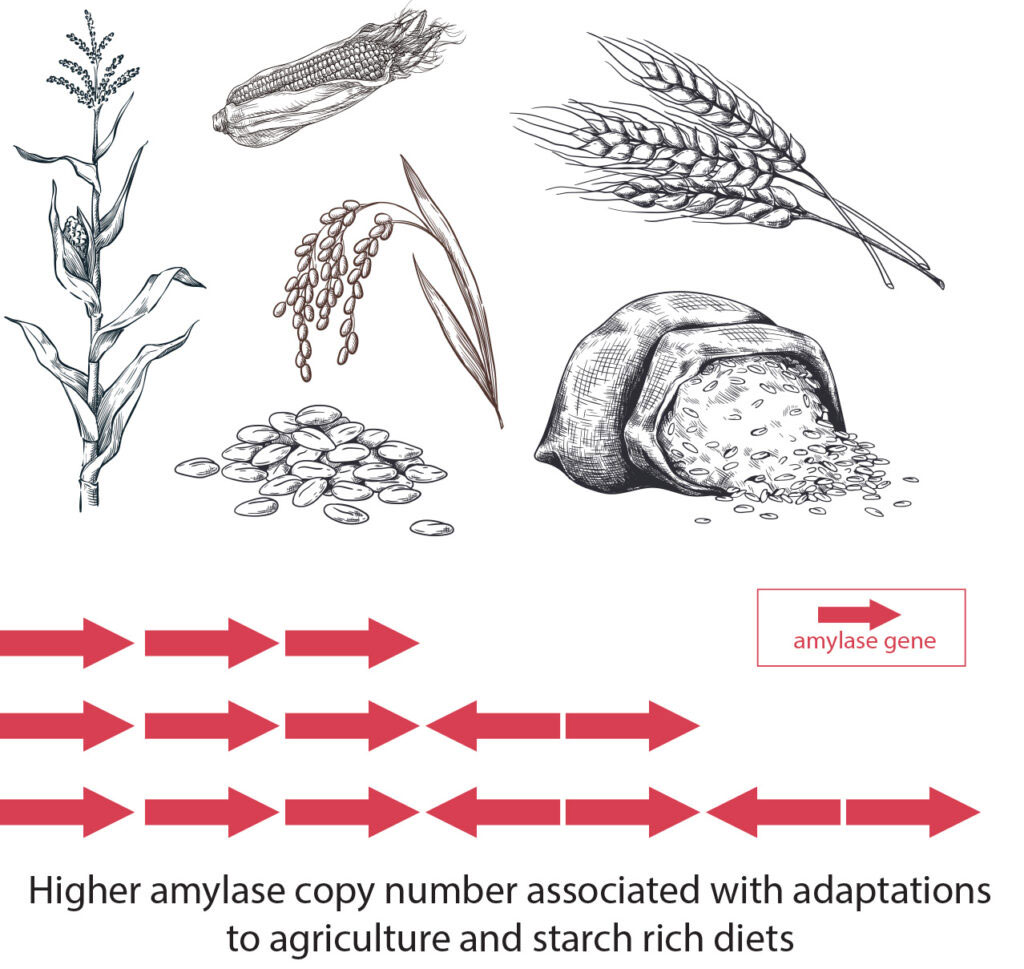When humans domesticated grains some 12,000 years ago, natural selection began to favor genomes with extra genes encoding for the enzyme amylase, which converts starch to sugar. These extra genes slipped into the same region of the genome where the three amylase genes originally sat (top set of arrows), though some became reversed (lower sets of arrows). Multiple copies of amylase genes presumably allowed agrarian societies to more efficiently extract energy from a diet high in carbohydrates.Peter Sudmant, UC Berkeley
